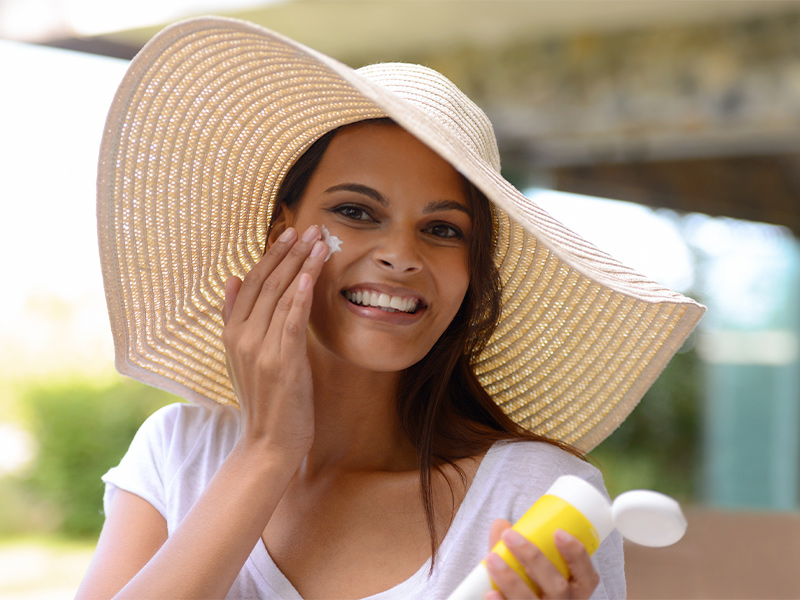Best ways to reduce your risk of getting cancer
Our cancer risk is largely in our own hands, as more than one in three cases can be prevented through simple lifestyle changes. Here’s what you should know.
While cancer survival rates are increasing in Australia, and death rates from cancer are dropping, the disease still accounts for around three in every 10 deaths (around 50,000 lives lost every year).
Cancer Council says at least one in every three cases of cancer could be prevented, and the rate of cancer deaths reduced significantly, by choosing a cancer-smart lifestyle.
“Each year, more than 13,000 cancer deaths are due to smoking, sun exposure, poor diet, alcohol, inadequate exercise and being overweight,” Cancer Council’s Public Health Committee Chair Anita Dessaix says.
“Fortunately, there are a number of simple lifestyle changes you can make to help reduce your risks.”
Knowing your cancer risk factors also means you can talk to your health professional if you need support.
Preventable cancer risks
Smoking
The leading preventable cause of cancer, smoking is a known cause of 16 different types of cancer, Cancer Council Victoria CEO Todd Harper says.
“Fortunately, there are immediate benefits as soon as you quit smoking, even if you already experience health problems,” Todd says.
“Just 12 hours after stopping, almost all nicotine is out of your system and 10 years after you quit, your risk of lung cancer is halved.”
- Kick the habit: The best foods to help you quit smoking
The sun’s UV rays
“Australia has one of the world’s highest skin cancer rates, yet it is one of the most preventable cancers, with exposure to UV radiation causing 95 per cent of melanomas,” Anita says.
“Whenever the UV reaches three or above, we encourage Australians to use sun protection – slip on sun-protective clothing; slop on broad-spectrum, water-resistant SPF 30 or higher sunscreen; slap on a broad-brimmed hat; seek shade; and slide on sunglasses.”
Alcohol
According to Cancer Council, there is convincing evidence that drinking any kind of alcohol, including beer, wine or spirits, increases the risk of cancer of the bowel, breast, mouth, throat, voice box, oesophagus and liver.
A recent Korean study published in JAMA Network Open found that people who increased their alcohol consumption had an increased risk for alcohol-related cancers and all cancers.
- Staying dry: 8 things to do instead of drinking alcohol
A high BMI
“A high body mass index (BMI) is a risk factor for 13 types of cancer, including oesophagus, stomach, bowel, liver and breast cancers after menopause,” Anita reveals.
“Eating well and being physically active will reduce cancer risk, regardless of a person’s body weight.
“These (habits) can also help you in avoiding weight gain, maintaining a healthy weight or losing weight to reduce your cancer risk.”
Occupational causes
Depending on your occupation and workplace, you may be at higher risk of being exposed to carcinogens or cancer-causing agents, Anita says.
“Putting in place control measures for carcinogenic hazards like asbestos, welding fumes, diesel engine exhaust or silica dust is the only way to reduce your cancer risk at work,” she explains.
Occupational exposures to carcinogens are estimated to cause over 5000 new cases of cancer in Australia each year.
Non-preventable cancer risks
Age
Many cancers are more common as we get older.
In general, people over 65 have the greatest risk of developing cancer, while people under 50 have a much lower risk.
Cancer Council says one in two Aussie men and women will be diagnosed with cancer by the age of 85.
- Ageing gracefully: How to embrace getting older
Family history
Some people are more likely to develop certain cancers because they have an inherited gene mutation that is passed down through generations.
The good news? Less than one in 10 cancers are associated with gene mutations.
Early detection and screening to reduce cancer risk
Cancer screening is one of the most effective ways to detect early signs of cancer and, in Australia, national screening programs are available to detect breast, bowel and cervical cancers.
“Unfortunately, we don’t know all of the risks and causes of cancer,” Anita says.
“That’s why conducting research to better understand, detect and treat it remains important to reduce the impact of cancer for all Australians.”
Written by Liz McGrath.





